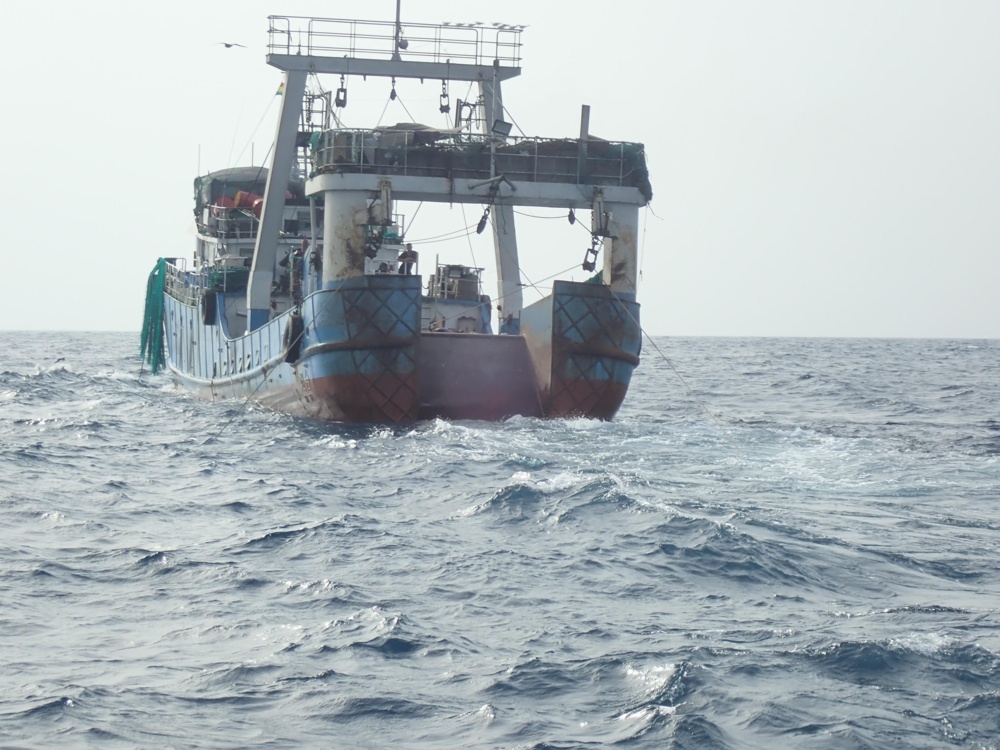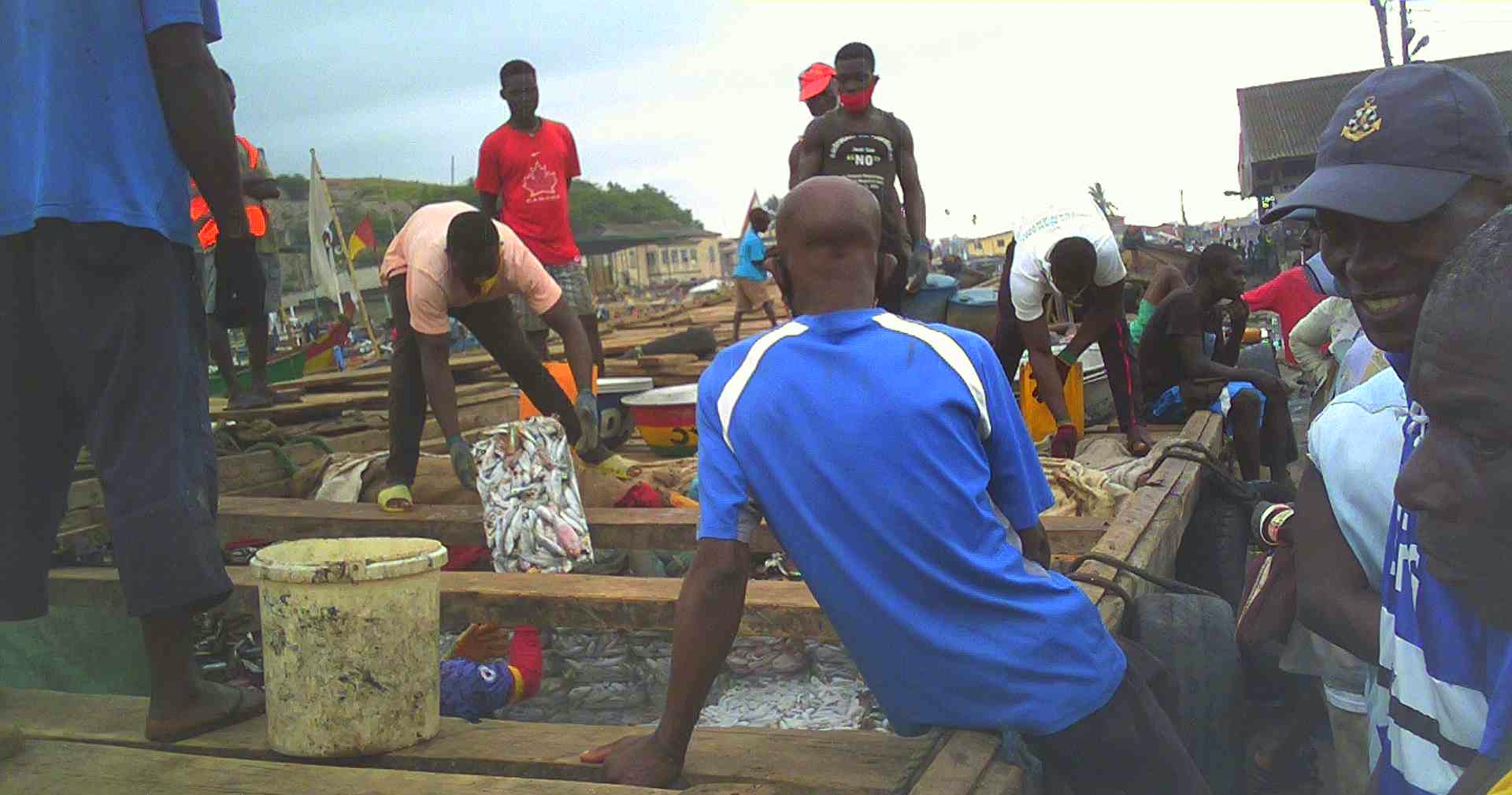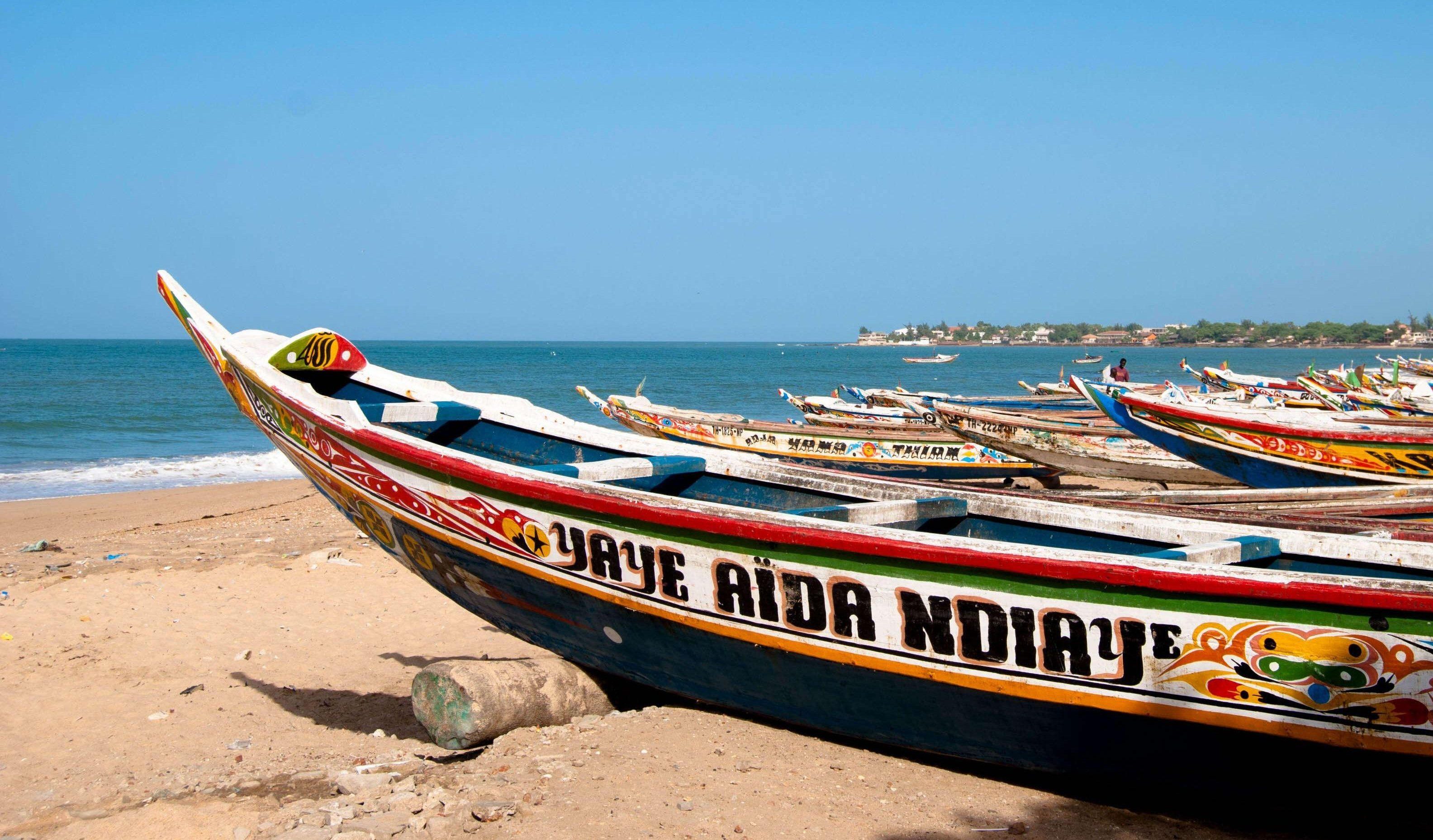
Warning to EU over imports from vessels fishing illegally in Ghana
There is a high risk that seafood caught by vessels fishing illegally in Ghana is entering the EU market, a new report by the Environmental Justice Foundation has concluded. Industrial trawlers authorised to export to the EU have been linked to illegal foreign ownership and implicated in the use of prohibited nets, fishing in the exclusion zone reserved for small-scale canoe fishers, and the illegal ‘saiko’ trade. Saiko is a highly destructive form of illegal fishing that is driving the collapse of crucial fish populations in Ghana and threatening the livelihoods of 2.7 million Ghanaians.
In 2013, the European Commission issued Ghana with a ‘yellow card’ – a formal warning over illegal fishing that can lead to import bans to the EU – this was lifted in 2015 as a result of new legislation and a clear fisheries management plan. However, while these policies are well constructed, there are worrying indications that they are not being fully implemented or enforced, says EJF.
Ghana’s industrial trawl fleet exports between 2,000 and 3,500 tonnes of cuttlefish, octopus and squid to the EU every year, primarily to Portugal, Italy and Spain, worth around €10 million. While most exports to the EU are tuna, caught by different vessels, it is the trawl fleet that is cause for alarm, says EJF.
Using data from satellite monitoring and at-sea observations, as well as pooling data from other organisations, EJF has been able to show multiple cases in which trawl vessels authorised to export to the EU have been involved in illegal activities.
It is the involvement in the saiko trade that is of greatest concern, says EJF. In this trade industrial trawlers target the staple catch of small-scale canoe fishers – often by using illegal under-size mesh nets – and transfer it to specially adapted boats at sea for sale at local markets. The practice is having a severe impact on Ghana’s ‘small pelagic’ fish populations, and sardinella is already on the brink of collapse, with landings having crashed by 80% over the past twenty years.
As a market for seafood caught by Ghana’s trawl fleet, EU consumers are inadvertently supporting illegal practices and severe overfishing in Ghana’s waters. This is having devastating impacts on local fishing communities, and the 2.7 million people in Ghana that rely on marine fisheries for their livelihoods.
Potential breaches of EU health legislation were also revealed by the report. Products are apparently routed via China and imported to the EU as products of Chinese rather than Ghanaian origin. Nine trawlers flying the Ghanaian flag have appeared in China’s list as authorised to export to the EU under EU health legislation when they should have been in Ghana’s list. This could mean that considerably more products from Ghana’s trawl fishery are finding their way to the EU market.
Despite being against Ghanaian law, around 90% of the country’s industrial trawl fleet is linked to Chinese ownership, investigations by EJF have shown. These operators set up opaque corporate structures and work through Ghanaian ‘front’ companies to obtain licences to fish. EJF found that two of the trawlers authorised to export to the EU are registered to a small Ghanaian enterprise set up by a Chinese corporation. This also links the illegal actions of the trawl fleet to the tuna vessels, because some trawlers with a history of illegal fishing are ultimately owned by the same Chinese fishing companies that export tuna to the EU and UK.
EJF is calling for the EU to use all tools available under its Regulation to combat illegal, unreported and unregulated fishing to help Ghana bring an end to saiko and improve transparency in its fisheries. All EU member states, but especially Portugal, Italy and Spain which receive the majority of imports from Ghana’s trawl fleet, as well as major tuna importers, such as France, Germany, the Netherlands and the UK, should scrutinise seafood imports from Ghana and be alert to possible trade diversions. Importers, processors and retailers must also pay close attention to the situation, and examine all supply chains originating in Ghana, particularly from the trawl fleet.
Executive Director of EJF Steve Trent says: “Saiko is precipitating a human and ecological crisis in Ghana, with fish stocks on the brink of collapse and livelihoods and food security on the line. The fact that EU consumers may be inadvertently driving or facilitating this dire situation is distressing news. The European Commission can do much to help and encourage Ghana to end this situation once and for all. Full transparency for the fleet in particular is urgently needed.”
Notes for Editors
Read the report
SIGN UP FOR OUR EMAILS AND STAY UP TO DATE WITH EJF

